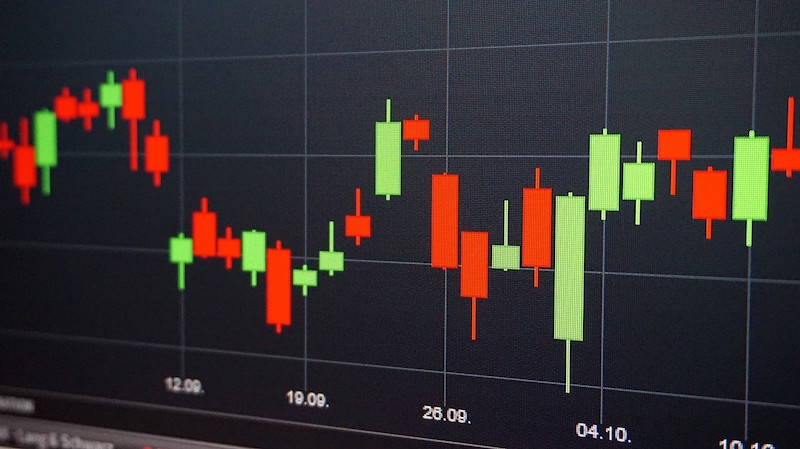Investment and trading in the financial markets have been completely transformed by trading apps. There has been an increase in the use of trading applications among retail traders and investors as a result of the widespread availability of financial data and the proliferation of mobile devices. In this article, we’ll have a look at some of the best trading apps out there right now and discuss what makes them so special.

Robinhood:
Traders can buy and sell stocks, options, cryptocurrencies, and exchange-traded funds (ETFs) through the Robinhood app without paying any transaction fees. Robinhood’s accessibility and lack of initial capital requirements have made it a hit with first-time and younger investors. For convenient access to finances, the app provides both a cash management account and a debit card.
T.D. Ameritrade:
When it comes to mobile trading apps, TD Ameritrade’s offering is among the most feature-rich. You can use the app’s sophisticated charting features, create your own screeners, and access a wealth of scholarly and instructional materials. Trading stocks, exchange-traded funds, and options is all free of charge on TD Ameritrade.
ETRADE:
Similarly to Robinhood, ETRADE is a widely used trading programme that allows users to buy and sell stocks, ETFs, and options without paying any transaction fees. The app also provides access to numerous study tools, such as market news, analyst reports, and video lectures. When you open a cash management account with E*TRADE, you’ll also get a debit card for quick and easy access to your money.
Fidelity:
Trading stocks, ETFs, and options is all free of charge on Fidelity’s robust trading app. The app provides access to a wealth of academic literature and learning tools, including sophisticated graphing options and adaptable screeners. A cash management account and debit card are available from Fidelity as well.
Charles Schwab:
Commission-free stock, ETF, and option trading is available through the Charles Schwab trading app. The programme also features sophisticated charting instruments, adaptable screeners, and a wealth of informational and instructional materials. Charles Schwab also provides customers with the option of opening a cash management account and issuing debit cards for instantaneous access to their cash.
Interactive Brokers:
The trading app from Interactive Brokers is a robust platform with access to a large variety of research and educational materials, in addition to comprehensive charting capabilities and a screener that can be tailored to the user’s specific needs. Commission-free stock, ETF, and option trading are also available through the app. Cash management accounts and debit cards are also available through Interactive Brokers.
To sum up, trading apps have grown in importance and are now a crucial element of the current trading landscape. Traders should do their homework and compare and contrast each of the aforementioned apps before settling on the best option for them. Always perform adequate research and prudently handle your finances regardless of the app you end up using.
Advantages of Trading Apps:
The rise in popularity of trading applications over the past few years may be attributed to the fact that they provide a simple and accessible gateway to the financial markets, wherever the user may be. These apps provide a plethora of features and advantages that make trading easier, cheaper, and more convenient than ever before.
• One of the major benefits of trading apps is that they often do not charge any commissions or have very minimal trading fees. In comparison to traditional brokerages, which typically tack on hefty commissions or fees to every deal, this is a significant save. Trading apps also have the additional benefit of providing access to a wide variety of financial products, such as stocks, options, ETFs, and cryptocurrencies, making trading accessible to investors with limited capital. This facilitates portfolio diversification and taking advantage of fluctuating market conditions, and trading applications provide a wealth of materials to help traders learn about the markets, assess patterns, and make sound trading decisions. Advanced charting tools, individualised screeners, and a wealth of informational and instructional materials are all available via a variety of apps.
• Traders can make quick and easy transactions from their mobile devices with the help of trading apps. For active traders, who must adapt fast to ever-shifting market conditions, this is crucial. Trading applications give investors unrivalled mobility and convenience by allowing them to place trades from any location at any time.
• Traders can gain access to real-time market data and analytics, which is a major benefit of trading apps. This information can help with market research, portfolio management, and trading. Traders can keep tabs on their accounts and respond swiftly to market fluctuations with the help of the alerts and notifications offered by a number of popular trading applications. Apps that facilitate trade have many benefits, but users should be aware of the potential drawbacks as well. Investors and traders alike need to be aware of and prepared for the various hazards that can arise. Gaining an in-depth familiarity with financial markets, trading tactics, and risk management practises is mandatory.
When it comes to investing and trading in the financial markets, trading applications have been a game-changer. The many features and benefits they provide have made trading easier, cheaper, and more convenient than ever before. Traders should constantly do their homework and monitor their accounts to ensure they are making well-informed decisions and keeping their exposure to risk to a minimum.
Disclosure: We might earn commission from qualifying purchases. The commission help keep the rest of my content free, so thank you!



